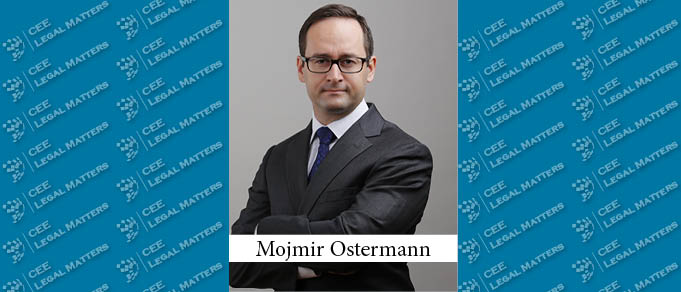“Nobody has a crystal ball, so it’s very difficult to foresee what the immediate future will look like,” says Mojmir Ostermann, Managing Partner of Ostermann & Partners, referring to the current situation in Croatia and the COVID-19 crisis.
“To be serious, I think that Croatia has responded to the coronavirus crisis as well as it could have,” Ostermann says. “The government team in charge of handling the situation is doing a good job, lockdown and social distancing measures have been implemented in time, and we’re doing our best to flatten the curve.” The measures Ostermann speaks of have been in place for almost a full month, and Croatia is approximately 995 active coronavirus cases.
“I think that we’re on a good path to avoid putting an insurmountable strain on our medical system,” Ostermann reports, though he admits to some concerns for the aftermath of the crisis. “The lockdown, which also includes the closing of Croatia’s borders, carries with it a huge threat to our tourism sector,” he says, “which makes up a large part of the country’s budget and our GDP.” He reports that some continue to hope that the tourist season will open by June or July.
As part of its economic stimulus package, the Government of Croatia has undertaken measures to protect jobs, Ostermann says. “The Government has decided to pay HRK 4000 [approximately EUR 525] to most endangered workers from March to May in order to prevent employers laying people off, and some 400 thousand people have already applied for this aid,” he reports. “The Government said that the country is liquid enough for three months of coverage and has also stated that negotiations with international financial institutions, such as the World Bank and the IMF, have also been initiated, in case additional funds are needed later on.”
Ostermann reports that the Croatian Central Bank has made some good moves to protect the HRK-EUR exchange rate. “The Central Bank withdrew a lot of HRK from the market when the current crisis started and has protected the exchange rate efficiently. If it had gone up to HRK 8 to EUR 1, people could have raided banks to get to their money.”
As if the COVID-19 pandemic weren’t enough, the recent earthquake in Zagreb took a heavy toll on the capital city’s downtown. “One of the towers of our Cathedral fell and was destroyed during the earthquake and the other one suffered so much structural damage that it’ll have to be taken down as well,” Ostermann states. The majority of downtown Zagreb’s buildings date all the way back to the 19th century, he says, and a lot of them were hit pretty hard in the quake. “There’s still no plan as to how and when these buildings will be fixed,” he sighs. “That effort will take time.”
Finally, speaking about how the crisis is impacting the legal profession, Ostermann reports that litigation has been heavily affected. “Most cases have been put on hold due to courts not working, but there’s a problem: there hasn’t been a law yet that would put all of the relevant court deadlines on hold during this crisis. This can lead to many cases being decided in a suboptimal fashion.” In addition, he says, with the courts not working and the deadlines not being frozen, some people may be left stranded. “Imagine a situation where an employee gets fired now, due to the crisis. They’d normally have 15 days to file an appeal against this but with most lawyers being difficult to reach, or simply overwhelmed with work – they’re left stranded.”
In addition, Ostermann says, he expects lawyers who do dispute resolution to be swamped after the crisis ends. “We can expect a flood of court rulings that will be handed down and delivered after the crisis ends – this will leave lawyers with a lot of work and only 8 to 15 days to sort out most of it due to mandatory deadlines.”
By contrast, Ostermann reports that Corporate lawyers are seeing a lot of work. “When times are good we work on transactions, and when times are poor we work on restructurings. “At this stage we received a lot of inquiries about frustration of contract, and soon this work is expected to lead to restructurings of both debt and companies. In addition to restructuring and bankruptcy cases, he says, Labor lawyers are busy helping “people seeking ways to navigate the crisis by implementing remote work and filings for employees’ incentive measures introduced by the Government.”
















